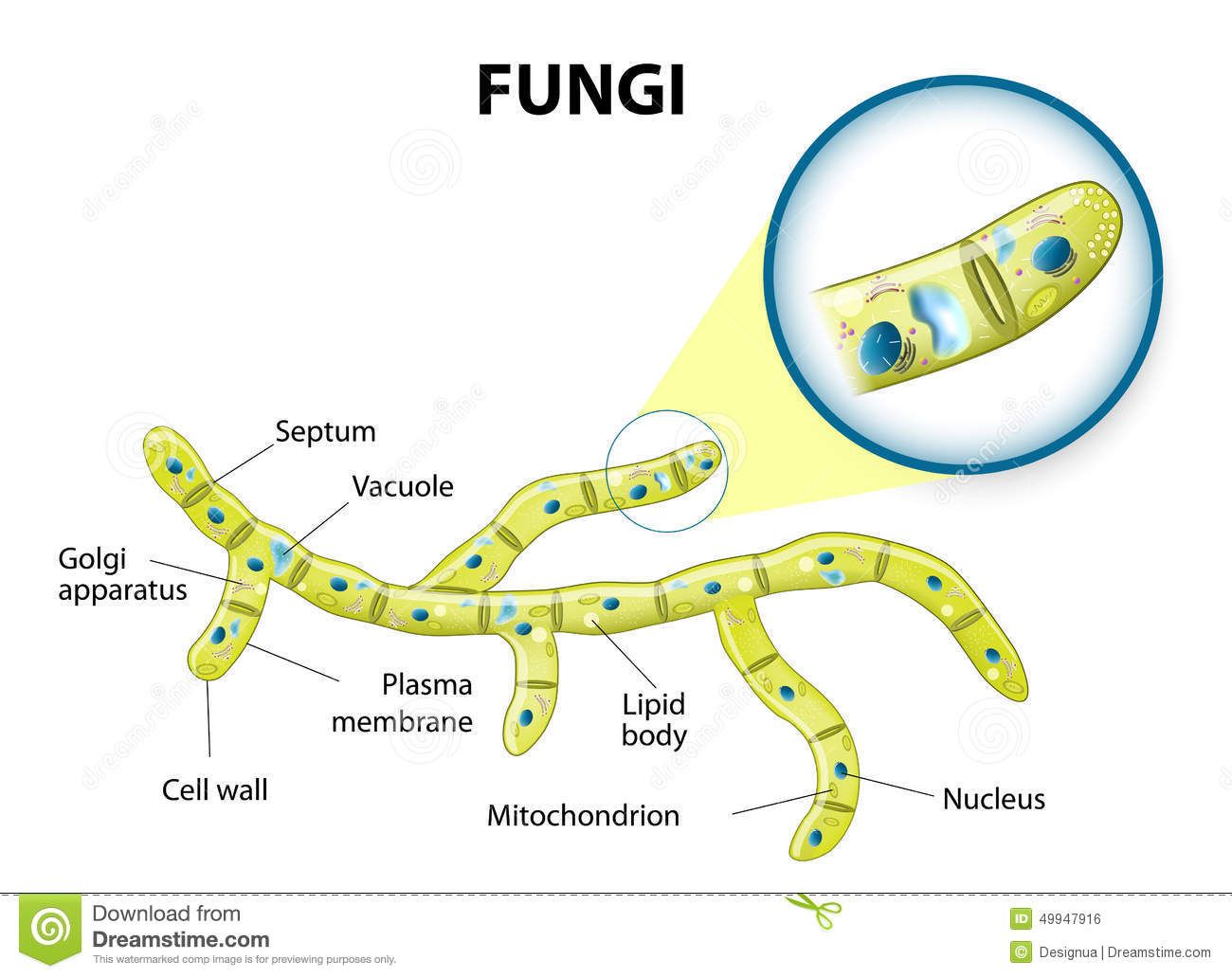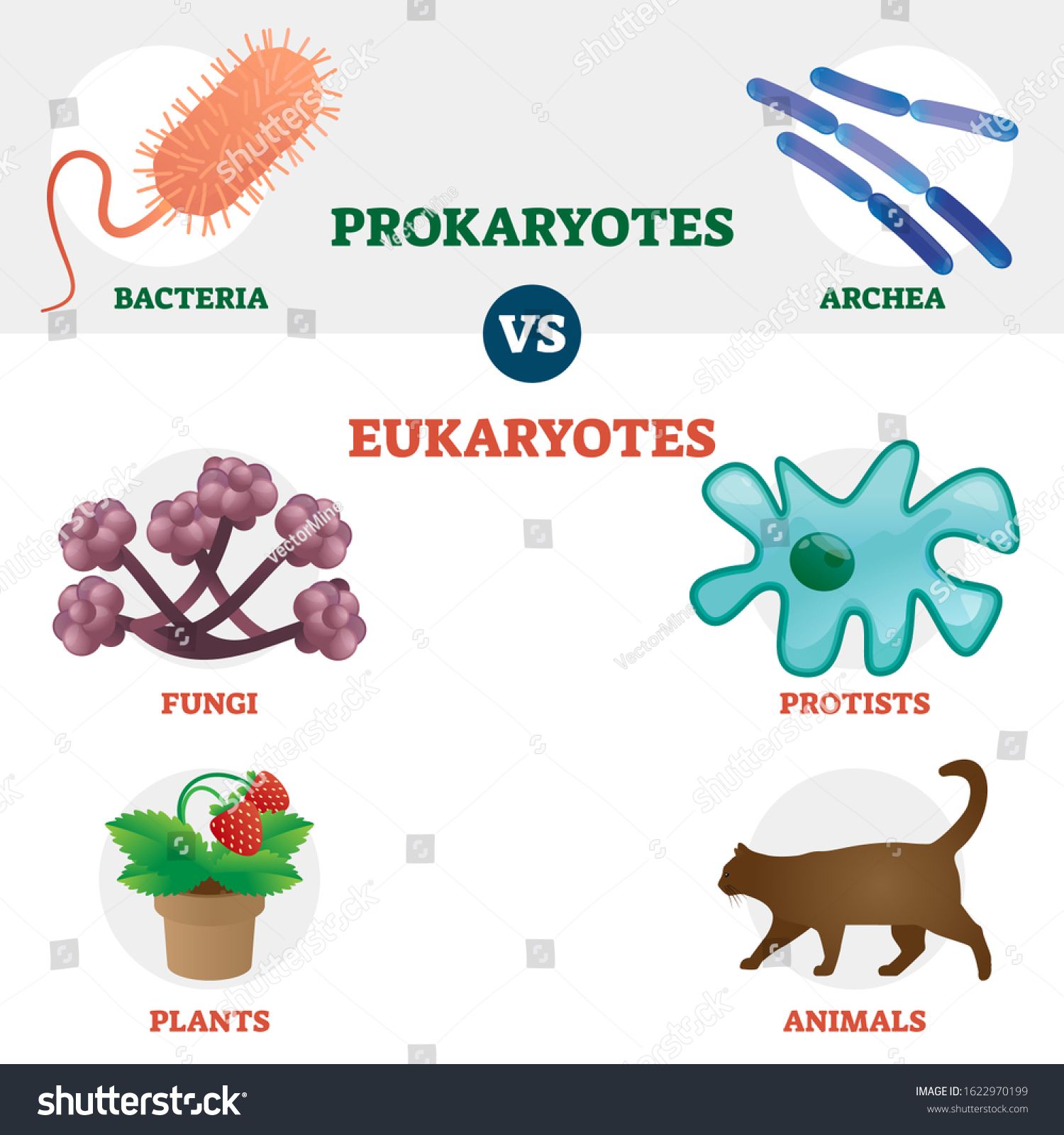are fungi eukaryotic
Fungi are eukaryotes and have a complex cellular organization. They may be unicellular or filamentous.
 |
| Fungi Cell Stock Vector Illustration Of Life Herbal 49947916 Fungi Eukaryotic Cell Cell Diagram |
Treat because just like your cells fungi have a membrane bound nucleus and many membrane bound organelles.

. Fungi are eukaryotes and have a complex cellular organization. Treat because just like your cells fungi. Fungi do not have vascular systems. As eukaryotes fungal cells contain a membrane-bound nucleus where the DNA is.
Why is fungi classified as eukaryotic. Being a microscopic organism fungi have a complex. Fungi is a type of eukaryotic organism belonging to the kingdom Fungi alongside plants animals protozoa and monera. They are classified under the kingdom Eukaryota.
Fungi are eukaryotes and have a complex cellular organization. They can maintain different environments in a single cell that allows them. Fungi are eukaryotic heterotrophic and ubiquitous organisms. Fungi are multicellular organisms meaning they are made up of many cells.
Fungi are eukaryotic organisms and possess a true membranous nucleus. No - fungi are eukaryotic. Fungi 2 or funguses 3 is any member of the group of eukaryotic organisms that includes microorganisms such as yeasts and molds as well as the more familiar. They have a cell wall.
No embryonic stage in fungi is found. Fungi are eukaryotic organisms that consist of microorganisms like yeasts moulds and mushrooms. Each cell is complex with a variety of functioning organelles inside. Yes fungi are eukaryotic.
Eukaryotes are organisms with a prominent nucleus and membrane-bound organelles. Fungi are eukaryotic non-vascular non-motile and heterotrophic organisms. Members of the kingdom Fungi are eukaryotes meaning they have complex cells with a nucleus and organelles. Fungi exhibit the phenomenon.
Fungi are considered haploid eukaryotes and undergo reproduction through processes like asexual spore release vegetative reproduction and sexual spore release. Most fungi are multicellular. Fungi are eukaryotic organisms. They may be unicellular or filamentous.
Ie their cells contain membrane-bound organelles and clearly defined nuclei. Like plants and animals fungi are eukaryotic multicellular organisms. Yes fungi are eukaryotic. Protozoa fungi plants and animals all have eukaryotic cells.
These organisms belong to the kingdom fungi. They reproduce by means of spores. Yes fungi are eukaryotic. Their cells are long and.
They may be unicellular or filamentous. A fungus plural. Unlike these other groups however fungi are composed of filaments called hyphae. Fungi are incredibly diverse with commonly.
Fungus are a kingdom of usually multicellular eukaryotic organisms that are heterotrophs cannot make their own food and have important roles in. Prokaryotes are organisms that lack a.
 |
| 6 Differences Between Plant Cell And Fungal Cell Simple Point Wise Explanation Plant Cell Cell Membrane Structure Cell Wall |
 |
| Eukaryote Vs Prokaryote Cell Type Organisms Educational Set With Bacteria Archea Fungi Protists Pla Prokaryotes Prokaryotes Vs Eukaryotes Prokaryotic Cell |
 |
| Prokaryotic Cell Vs Eukaryotic Cell By Nadiadaniela Prokaryotic Cell Eukaryotic Cell Prokaryotes |
 |
| Trivia Quiz What Do You Know About Prokaryotic And Eukaryotic Cells Eukaryotic Cell Prokaryotes Vs Eukaryotes Prokaryotic Cell |
 |
| Pin On Web Pixer |
Posting Komentar untuk "are fungi eukaryotic"